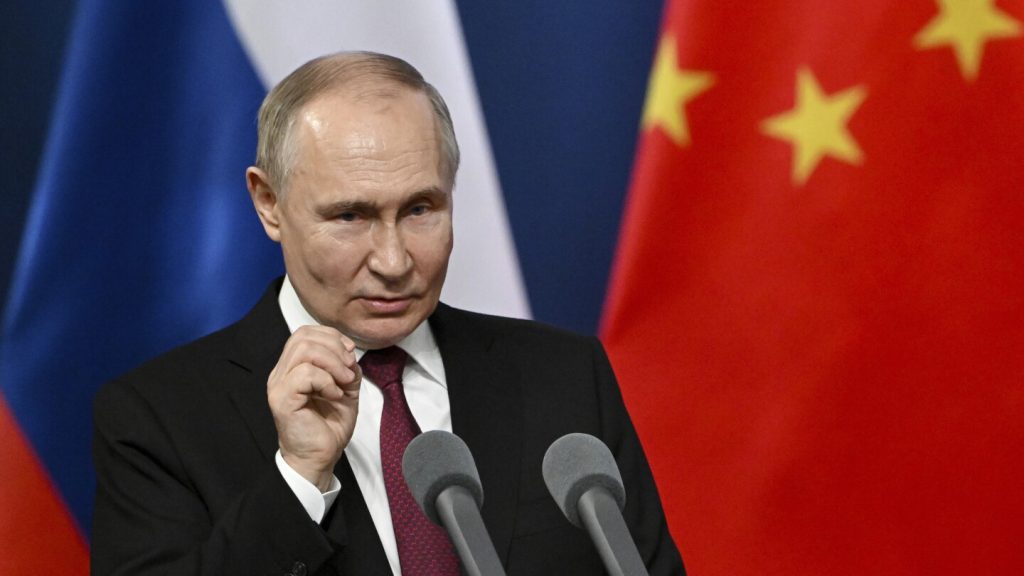Russian President Vladimir Putin wrapped up a two-day visit to China, highlighting the growing strategic ties between the two countries. Putin, along with Chinese leader Xi Jinping, underscored their personal relationship while touring a China-Russia Expo in Harbin. Putin announced the opening of a joint school between the Harbin Institute of Technology and St. Petersburg State University, aiming to enhance scientific and educational cooperation between the two nations.
The partnership between China and Russia, according to Putin, is not aimed against anyone but is focused on improving the well-being of their people. However, Putin also made a veiled reference to the West, stating that an emerging multipolar world is shaping up, challenging the existing decision-making monopoly in the world. Both Russia and China have frequently highlighted the concept of an emerging multipolar world as a response to perceived U.S. hegemony.
Experts believe that the visit by Putin to China sends a clear message to the West, indicating the two countries’ defiance and support for each other’s expansionism. Taiwan’s Foreign Minister, Joseph Wu, expressed concerns over the implications of Russia and China’s cooperation, particularly in light of the conflict in Ukraine. Wu emphasized the need for Western powers to support Ukraine as a means of deterring further aggression by authoritarian regimes like China and Russia.
Russia, facing global isolation following the invasion of Ukraine, has increasingly turned to China for technology and consumer imports while exporting energy. The trade between the two countries reached $240 billion last year, indicating the deepening economic ties between Moscow and Beijing. Despite calls from European leaders for China to intervene in Russia’s invasion, Beijing has shown little inclination to do so.
Xi Jinping and Vladimir Putin, with their longstanding agreement to visit each other’s countries annually, have strengthened their personal relationship over the years. The recent joint statement by China and Russia criticizing U.S. military alliances in Asia and the Pacific reaffirms the no-limits relationship signed by the two nations in 2022. As both countries face tensions with the West, their strategic partnership offers mutual benefits and serves as a counterbalance to Western influence in global affairs.
The ongoing conflict in Ukraine, with Russia opening a new front in the northeastern border area, remains a focal point of discussions between China and Russia. While China proposed a peace plan last year that was rejected by Ukraine and the West, the war in Ukraine continues to escalate. As Western sanctions on Moscow deepen, Russia’s reliance on China for technology and imports grows, further cementing the alliance between the two countries. European leaders’ efforts to sway China to influence Russia have seen limited success, highlighting the complex dynamics of international relations.


